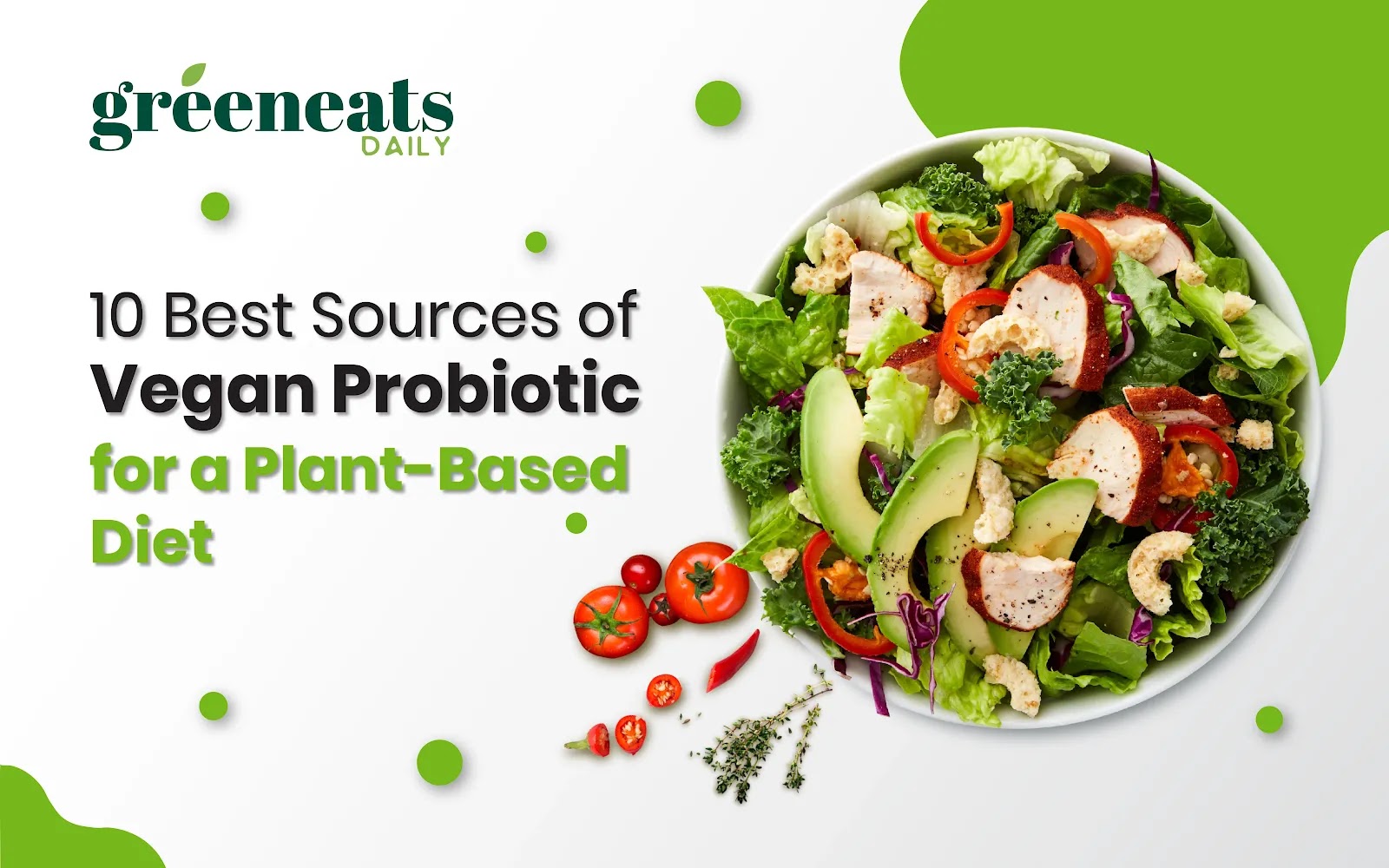Are you a vegan who wants to take care of your gut health? Maintaining a balanced gut microbiome is essential for overall health and well-being, and probiotics can help you achieve that. Probiotics are live microorganisms that can provide numerous health benefits when consumed adequately. While many people get their probiotics from dairy products, there are plenty of vegan sources of probiotics too. In this article, we will discuss the 10 best sources of vegan probiotics that you can add to your diet.

Understanding Probiotics and Gut Health
Probiotics are beneficial bacteria that live in our gut and help digestion and immunity. They can also help regulate bowel movements, improve mental health, and even prevent cancer. However, not all bacteria are beneficial, and maintaining a balance of good bacteria is essential for optimal health.
As a vegan, you may be concerned about getting your daily dose of probiotics without consuming dairy products. Fortunately, there are plenty of vegan sources of probiotics that can help you achieve that. Incorporating probiotics into your diet can be easy and delicious, and in this article, we will explore the 10 best sources of vegan probiotics.
The 10 Best Sources of Vegan Probiotics
Including vegan probiotics in your diet can offer many benefits, including improved digestion, a strengthened immune system, and better mental health. By consuming these 10 best sources of vegan probiotics, you can provide your gut with the essential bacteria needed for optimal health. From tangy kombucha to creamy vegan yogurt, these plant-based options are both delicious and nutritious. Incorporating probiotic-rich foods into your meals is an easy and effective way to support your gut microbiome and promote overall wellbeing.

Sauerkraut
Sauerkraut is a fermented food made from cabbage and is an excellent source of probiotics. It is easy to make at home, and a single serving can provide millions of beneficial bacteria.

Kimchi
Kimchi is a Korean dish made from fermented vegetables such as cabbage, radish, and scallions. It is rich in probiotics, vitamins, and minerals and can be a great addition to your vegan diet.

Tempeh
Tempeh is a fermented soy product that can provide you with probiotics as well as protein. It has a nutty flavor and can be used in various dishes such as stir-fries, sandwiches, and salads.

Kombucha
Kombucha is a fermented tea that is becoming increasingly popular among health enthusiasts. It is rich in probiotics and can help improve gut health as well as boost immunity.

Miso
Miso is a Japanese seasoning made from fermented soybeans, rice, or barley. It is a rich source of probiotics and can be used in soups, stews, and marinades.

Pickles
Pickles are cucumbers that have been fermented in a brine solution. They are rich in probiotics and can be a great addition to sandwiches, salads, and even as a snack.

Vegan Yogurt
Many brands of vegan yogurt are made with probiotics and can provide you with the same health benefits as dairy-based yogurts.

Natto
Natto is a traditional Japanese dish made from fermented soybeans. It is rich in probiotics and can be an acquired taste due to its strong flavor.

Kvass
Kvass is a traditional fermented drink made from rye bread. It is rich in probiotics and can be a great alternative to sugary drinks.

Vegan Cheese
Some vegan cheeses are made with probiotics and can provide you with the same health benefits as dairy-based cheeses.
Conclusion
Maintaining a balanced gut microbiome is crucial for optimal health, and incorporating probiotics into your diet can help you achieve that. As a vegan, there are plenty of probiotic-rich foods that you can include in your meals. From fermented vegetables to vegan yogurt, there are many delicious and nutritious options available. Remember to start with a small amount and gradually increase the dose to avoid digestive issues. By consuming these 10 best sources of vegan probiotics, you can improve your gut health and overall well-being.
Frequently Asked Questions
Are vegan sources of probiotics less effective than dairy-based sources?
No, vegan sources of probiotics can be just as effective as dairy-based sources. As long as they contain the right strains of bacteria and are consumed in adequate amounts, they can provide you with numerous health benefits.
Can probiotics help with weight loss?
While probiotics can help regulate digestion and improve gut health, they are not a magic weight loss solution. However, some studies suggest that consuming probiotics may help with weight management by reducing appetite and improving insulin sensitivity.
Can vegan probiotics cause digestive issues?
It is possible to experience digestive issues when incorporating probiotics into your diet, regardless of whether they are vegan or dairy-based. Some people may experience bloating, gas, or diarrhea. However, these symptoms are usually temporary and can be reduced by starting with a small amount and gradually increasing the dose.
How much probiotics should I consume per day?
The recommended daily intake of probiotics varies depending on the strain and the individual's needs. However, consuming one to two servings of probiotic-rich foods daily can provide adequate amounts of beneficial bacteria.
Can I take probiotic supplements as a vegan?
Yes, there are plenty of vegan probiotic supplements available in the market. However, it is always recommended to consult with a healthcare professional before taking any supplements.
Are there any side effects of consuming too much probiotics?
Consuming too much probiotics can lead to digestive issues such as bloating and diarrhea. However, these symptoms are usually mild and can be reduced by reducing the amount consumed.





0 Comments